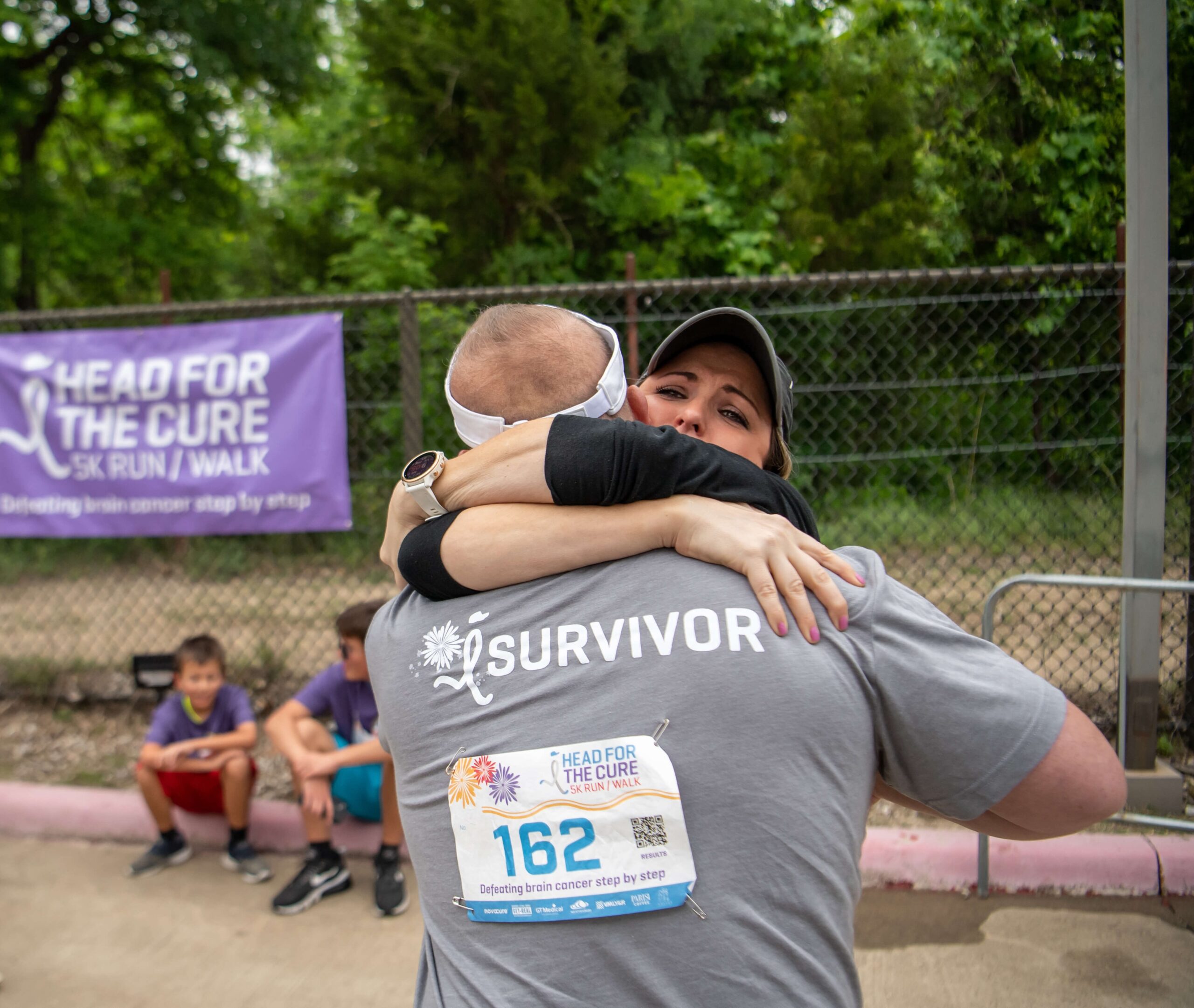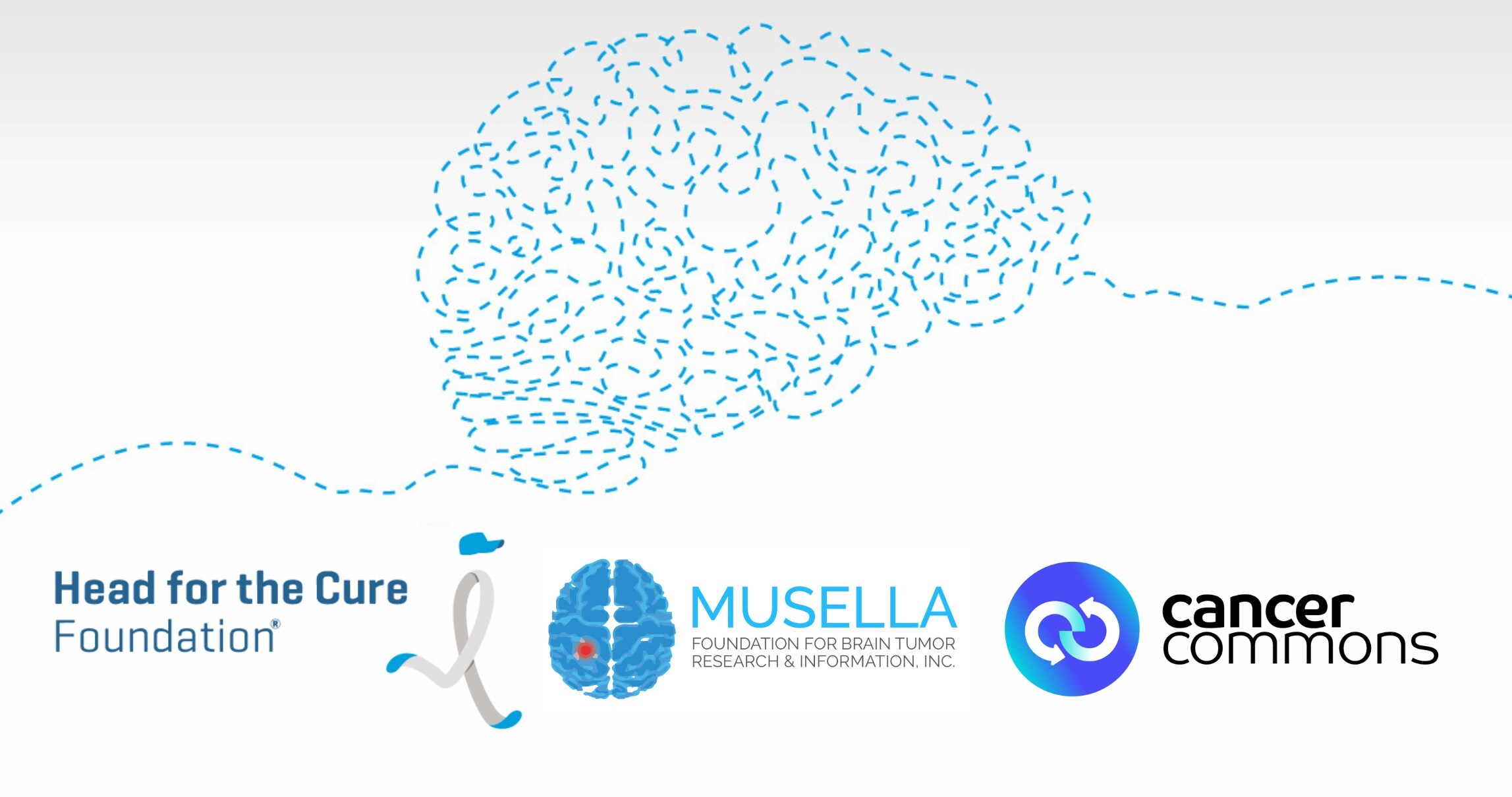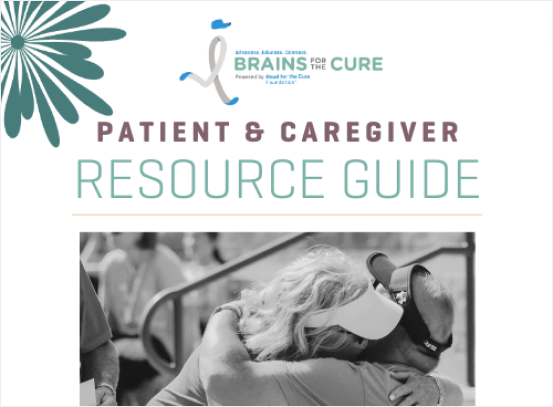June 2025 Ambassador Spotlight – Alaina Haggerty
Written by Alaina Haggerty At the end of February 2020, a close friend, who is a nurse practitioner, was visiting me for the weekend. Before leaving, she asked me to visit my primary care doctor …


Through a quick questionnaire, Join Your Path to Hope streamlines the brain tumor journey, offering immediate, personalized resources for your medical, emotional, and relational needs. Our goal is to empower patients and caregivers with hope and support across all aspects of the journey.
To get started, we have a few questions about your journey.
Explore inspiring journeys of resilience and hope through our Patient Stories

In the journey of facing a medical condition, it’s easy to let the label of “patient” overshadow our sense of self. Whether it’s a chronic illness, a sudden diagnosis, or a long-term treatment plan, the identity of being a patient can consume our thoughts and actions. However, it’s crucial to recognize the importance of prioritizing ourselves as individuals over our identity as patients. Here’s why:Preserving Self-Worth: Being a patient doesn’t define your worth as a person. It’s essential to maintain a healthy sense of self-worth independent of your medical condition. Remembering your talents, strengths, and qualities can help you maintain …
The thought of embracing my new identity as a brain tumor patient was a daunting journey filled with uncertainties and challenges. However, it was essential to remember that my identity is not solely defined by my medical condition. While it undoubtedly plays a significant role in my life, it doesn’t overshadow the other aspects of who I am as a person. Here are some steps that helped me navigate and embrace my new identity:Acknowledge Your Feelings: It’s okay to feel a range of emotions, including fear, anger, sadness, and even relief.
Gain insight and support from those who have walked the path of caring for a loved one with a brain tumor.
A brain tumor diagnosis in a child is life-altering, bringing challenges that no family expects to face. From navigating treatment options to addressing emotional and financial burdens, families need comprehensive support. That’s where the Children’s …

Written by Naomi Olivarez I’ve had the honor of being involved with Head for the Cure for what will be ten years next September of 2025. I first joined in 2015, the year my son passed away from stage 4 glioblastoma multiforme, and I haven’t missed a single event since. To say it was a difficult time is an understatement. All I wanted was to find a place where people could understand my pain and where something good could come from such a devastating experience. Watching my son endure things I’d only ever heard about in commercials was excruciating. Equally …

Join our patient and survivor support group on the first Thursday of each month on Zoom at 6 PM CT!

Join our support group for current caregivers on the second Thursday of each month on Zoom at 6 PM CT!

Join this support group for caregivers who’ve lost a loved one on the third Thursday of each month on Zoom at 6 PM CT!

The Rare Enough Podcast is a powerful platform dedicated to sharing inspiring stories of resilience and hope. By highlighting extraordinary individuals who have triumphed over life’s toughest challenges, we can spread awareness, support, and motivation to those who need it most.
Find it on your favorite podcast platform such as Spotify or Apple Music, or watch here!
Stay up to date!
Recurrent glioblastoma, sometimes referred to as glioblastoma multiforme or simplyGBM, stands as one of the most aggressive brain tumors known to medical science. Itis a malignancy that relentlessly invades the brain, presenting a formidable challengefor …
Leptomeningeal Metastases (LM) is sometimes referred to as leptomeningeal cancer,leptomeningeal disease, neoplastic meningitis, or meningeal carcinomatosis. This rarebut serious condition happens when cancer cells spread to the membranes surroundingthe brain and spinal cord. Leptomeningeal Metastases is …
Why Planning and Organization Matter After brain tumor treatment, changes in the brain can affect important thinking skills that help with planning, organizing, and starting tasks. These skills are necessary for managing day-to-day activities like …
About Us Brain tumors present unique challenges, demanding specialized care from diagnosis through treatment. With a shared commitment to addressing these challenges, the Brain Cancer Support and Solutions Alliance leverages the strengths of its member organizations to …





